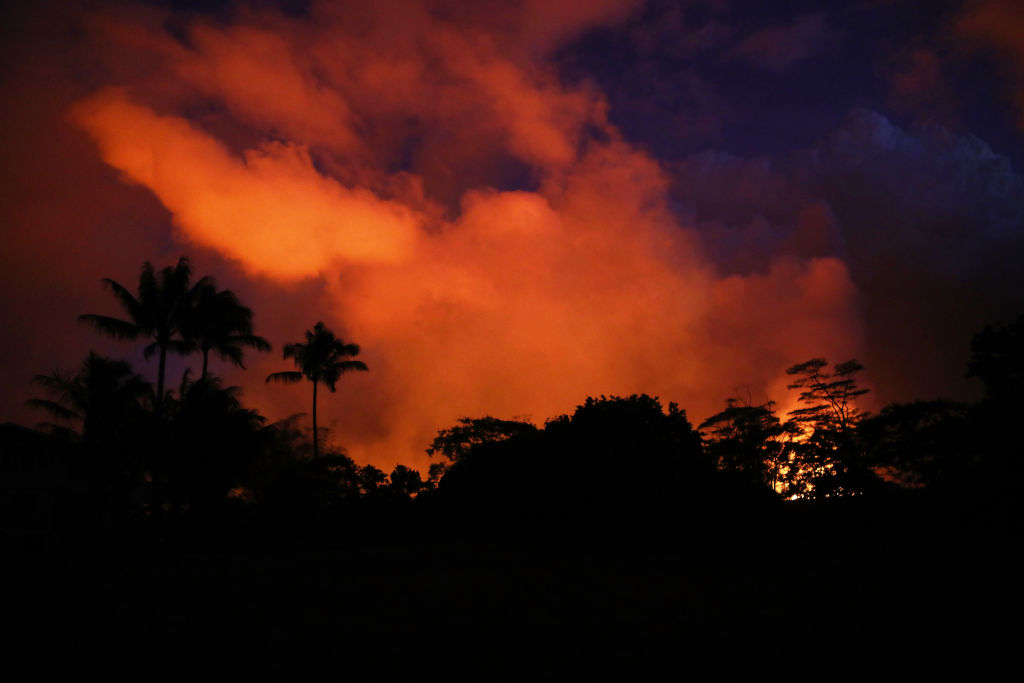This is why volcanic clouds move so fast

A free daily email with the biggest news stories of the day – and the best features from TheWeek.com
You are now subscribed
Your newsletter sign-up was successful
The dangers of volcanoes don't end at hot magma and falling rocks — you also have to worry about the plumes of ash, smoke, and toxic gases that are just as deadly, but reach a lot farther. Thanks to new research, scientists might be able to better understand how these volcanic clouds work, and how we can minimize their damage.
Clouds of volcanic debris, known as "pyroclastic density currents," have long been a mystery because they move much faster than they should be able to, National Geographic explained. They stick to ground level and seem to have an unnatural momentum that allows them to race downhill, on level surfaces, and even uphill. But a new study published Monday in the journal Nature Geoscience revealed that volcanic gases are able to spread at abnormal speeds thanks to a cushion of air that reduces the amount of friction they encounter in their path.
Using volcanic debris left behind by a volcanic eruption 2,000 years ago in New Zealand, researchers studied the way the pyroclastic flow moved, and were able to model the movement on computers. This data led them to the realization that air trapped between the toxic particles in the pyroclastic current drifted to the bottom of the clouds, buffering the current from any rough surfaces it might pass over. It's similar to the way an air hockey table works: The puck gains speed because of the layer of air that lifts it from the table's surface.
The Week
Escape your echo chamber. Get the facts behind the news, plus analysis from multiple perspectives.

Sign up for The Week's Free Newsletters
From our morning news briefing to a weekly Good News Newsletter, get the best of The Week delivered directly to your inbox.
From our morning news briefing to a weekly Good News Newsletter, get the best of The Week delivered directly to your inbox.
Although the data needs to be refined, it can be a tool in predicting where future eruptions' volcanic gases and ash might end up. That information, in turn, can be used to save the lives of the 800 million people who live within 60 miles of active volcanoes around the world.
Read more about this study at National Geographic.
A free daily email with the biggest news stories of the day – and the best features from TheWeek.com
Shivani is the editorial assistant at TheWeek.com and has previously written for StreetEasy and Mic.com. A graduate of the physics and journalism departments at NYU, Shivani currently lives in Brooklyn and spends free time cooking, watching TV, and taking too many selfies.
-
 How to Get to Heaven from Belfast: a ‘highly entertaining ride’
How to Get to Heaven from Belfast: a ‘highly entertaining ride’The Week Recommends Mystery-comedy from the creator of Derry Girls should be ‘your new binge-watch’
-
 The 8 best TV shows of the 1960s
The 8 best TV shows of the 1960sThe standout shows of this decade take viewers from outer space to the Wild West
-
 Microdramas are booming
Microdramas are boomingUnder the radar Scroll to watch a whole movie
-
 Rubio boosts Orbán ahead of Hungary election
Rubio boosts Orbán ahead of Hungary electionSpeed Read Far-right nationalist Prime Minister Viktor Orbán is facing a tough re-election fight after many years in power
-
 Key Bangladesh election returns old guard to power
Key Bangladesh election returns old guard to powerSpeed Read The Bangladesh Nationalist Party claimed a decisive victory
-
 Epstein files topple law CEO, roil UK government
Epstein files topple law CEO, roil UK governmentSpeed Read Peter Mandelson, Britain’s former ambassador to the US, is caught up in the scandal
-
 Iran and US prepare to meet after skirmishes
Iran and US prepare to meet after skirmishesSpeed Read The incident comes amid heightened tensions in the Middle East
-
 EU and India clinch trade pact amid US tariff war
EU and India clinch trade pact amid US tariff warSpeed Read The agreement will slash tariffs on most goods over the next decade
-
 Israel retrieves final hostage’s body from Gaza
Israel retrieves final hostage’s body from GazaSpeed Read The 24-year-old police officer was killed during the initial Hamas attack
-
 China’s Xi targets top general in growing purge
China’s Xi targets top general in growing purgeSpeed Read Zhang Youxia is being investigated over ‘grave violations’ of the law
-
 Panama and Canada are negotiating over a crucial copper mine
Panama and Canada are negotiating over a crucial copper mineIn the Spotlight Panama is set to make a final decision on the mine this summer